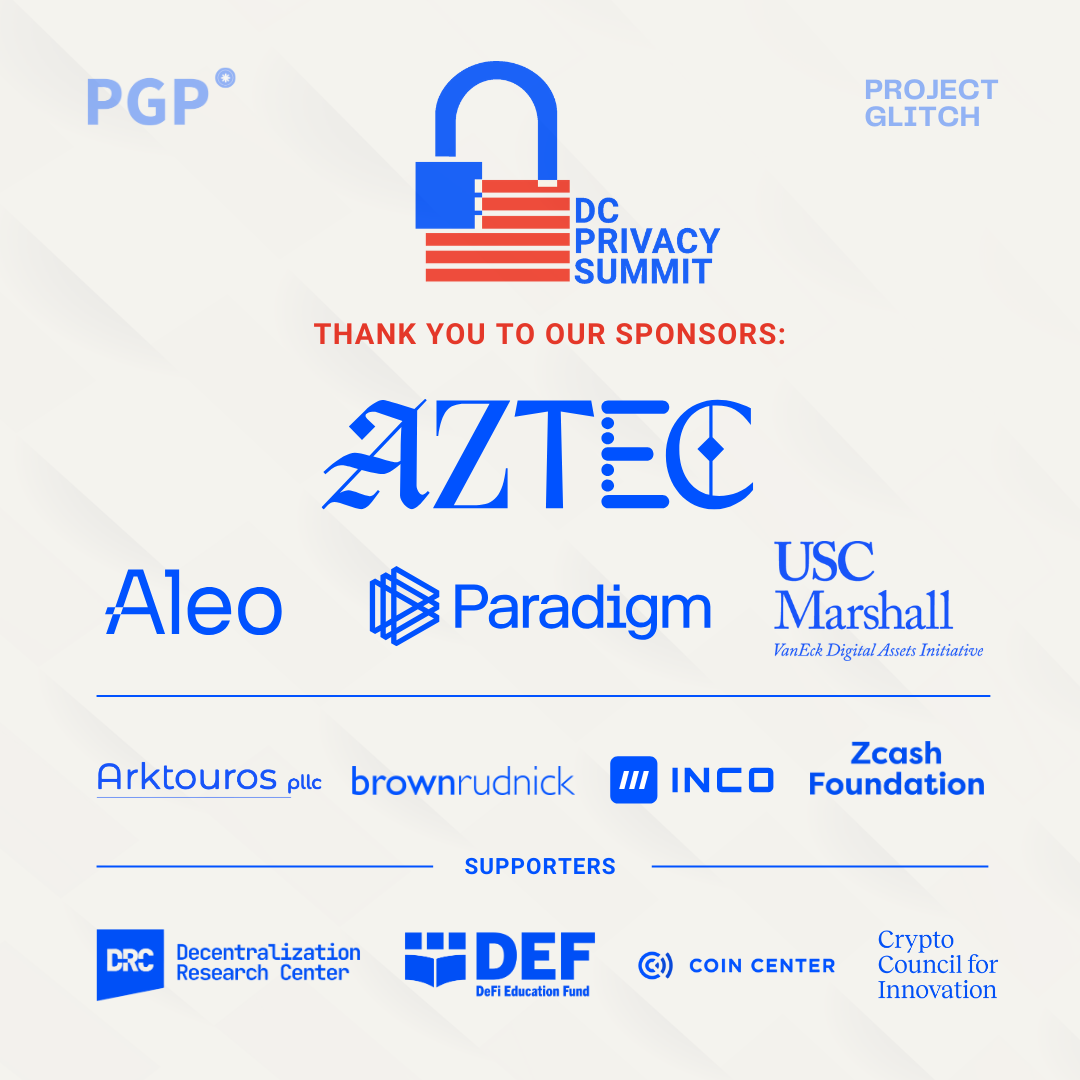Announcing the Second Annual DC Privacy Summit
How privacy can be security
We're thrilled to announce that the Second Annual DC Privacy Summit returns to Washington, D.C. on October 16, 2025, at the USC Capital Campus. Following the success of our inaugural event, this year's summit explores the idea that in many cases, privacy is security.
The summit reflects a critical recognition that new approaches to managing illicit finance risks in decentralized systems are needed—and that emerging cryptographic privacy tools can help.
At last year’s summit, we highlighted a dangerous impasse. Crypto and civil liberties advocates viewed the government’s crackdown on crypto privacy software developers as hostile and unfair, if not unconstitutional. On the other side, the government was approaching decentralized systems like Tornado Cash in the same way it approaches centralized financial institutions—even if that meant holding software developers responsible for crimes that users of their software commit, and which they could not have prevented.
A year later, though there are more “pro-crypto” vibes throughout the government, this impasse largely remains. Government officials still rely on old legal machinery in their attempts to manage the new risks that arise in decentralized financial systems. Ultimately, there’s been a chilling effect: many software developers working at the frontier of crypto are afraid they may be prosecuted if something goes wrong.
On top of all that, sophisticated, often state-sponsored hackers keep getting better at scamming and stealing, and at using crypto-privacy tools to cover their tracks.
What if these same technologies could be deployed toward managing the risks? We scratched the surface of this question last year, and this year we’ll delve deeper. At the very least, tools like zero-knowledge proofs make it possible to think about new ways of verifying crucial information, like that users haven’t been suspected of or associated with any crimes. There’s also an upside for users: the power to selectively disclose information about themselves—their birthday, age, national citizenship, or something else—without revealing anything else. That could mean fewer centralized servers full of personal data, which would make that information less vulnerable to hackers.
More secure. And more private.
We're bringing together the people wrestling with every facet of this conversation to explore creative and pragmatic new approaches. We’re excited and honored by the lineup of speakers who will be with us, including SEC Commissioner Hester Peirce, Johns Hopkins cryptographer Matthew Green, Peter Van Valkenburgh, Coin Center’s Executive Director, and Neha Narula from MIT's Digital Currency Initiative. Legendary white hat hacker Samczsun will share his first-hand experience of fighting state-sponsored hackers and other high-powered cybercriminals, while Justin Thaler from a16z and Abhi Shelat from Northeastern University will demystify zero-knowledge proofs and explain what they can—and can’t—accomplish in the real world. And applied cryptographer Ying Tong and others will talk about how to prevent the EU’s digital wallet from becoming a surveillance tool.
The summit will tackle the thorniest questions head-on. What could or should a post-KYC world actually look like? How can advanced cryptography help us catch the bad guys without trampling on everyone else's rights? And most urgently: how do we stop North Korea's Lazarus Group and other top-tier cybercriminals without sacrificing privacy innovations that could protect the personal data of ordinary citizens?
The stakes couldn't be higher. The trajectory of technology and law has lately bent towards greater surveillance and less freedom for individuals and institutions. This course can be altered, though. The choices we make about privacy technology today will echo through decades of digital life. We have the opportunity to build and implement systems that protect both individual privacy and collective security.
The conversation starts on October 16. We hope you’ll join us.
Register now at DCPrivacySummit.org
Government officials, members of academia, and media can reach out to us through the website contact form for information about alternate pricing.


